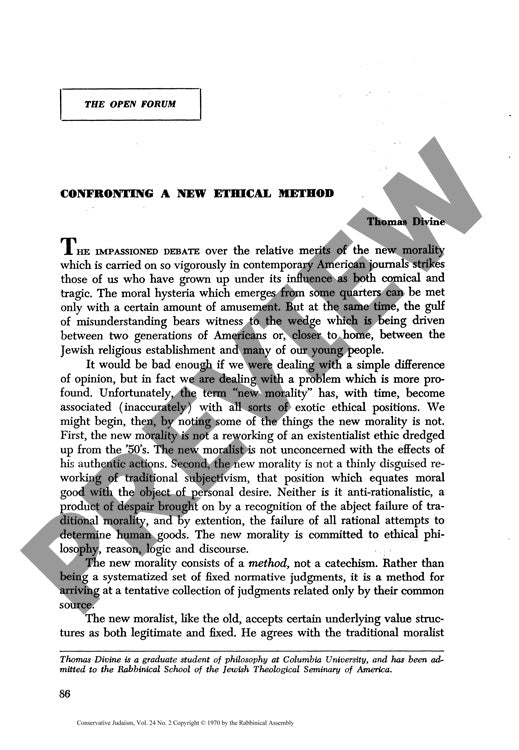Confronting a New Ethical Method
Couldn't load pickup availability
Contemporary "new morality" frameworks share fundamental values with traditional religious ethics - peace, justice, and human dignity - yet diverge sharply in their methodological approach. Rather than representing a fixed set of normative principles, new morality emerges primarily as an experimental ethical method, advocating flexible responses to evolving social conditions. Through comparative analysis between traditional and contemporary ethical frameworks, particularly within Jewish religious contexts, this research reveals how new moralists emphasize individual moral responsibility while maintaining commitments to rational discourse and ethical philosophy. The methodology examines underlying value structures and practical applications across both traditional and emerging moral frameworks. Key findings demonstrate that meaningful engagement with new morality requires "meta-halakhic" analysis focused on methodological dynamics rather than surface-level comparison of normative standards. Religious leadership faces an imperative to move beyond polarized debates toward substantive philosophical engagement, requiring rigorous conceptual analysis to formulate intelligent responses to contemporary ethical challenges.

More Information
-
Physical Description
-
Publication Information
Published 1970
ISBN
-
Publication Credits
Thomas Divine

